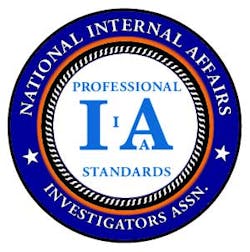Elected officials, community leaders, activists, and others have come to the conclusion that we, the police, must have oversight from outside our departments. They are asking or demanding an external process be put into action. This process is known as a civilian review board. Some have little power to do anything. Others are given subpoena power, access to active crime scenes, and conduct public hearings. Are these the wave of the future or a thing of the past? Whatever we think or believe, they are here and we have to accept them. So, the question begs to be asked, "How should we react?"
First, we should look at some of the causation factors. There are many reasons that communities explore this idea. At the top of the list are police involved shootings and uses of force. The community will call for outside investigation after a questionable shooting. We all know the upheaval when this happens. People come out of the woodwork. These folks are usually not from within the community where the incident took place, but are associated with organizations that make their claim to fame by community activism. Is this wrong? Not always--at times it benefits all concerned to have a mediator between the police and the community available .
Departments should have an agreement with a state, federal or neighboring agency to conduct the criminal investigation. Of course, the department should handle the internal investigation into policy, procedures, and training. At all times the community, press, activists, elected officials, and families should be kept advised of all details that can be made available to them. Departments must be open and truthful. If there is an unjustified shooting, we have to take it on and do the right thing.
A department that has a strong internal affairs unit will always conduct a fair and impartial investigation. Once the investigation is complete, it is handed over to the command staff for review, and sanctions taken where appropriate. Furthermore, the local district attorney will review the case for criminal misconduct. In most cases the punishment dealt out by command staff is harsher than that of a civilian review board. This often surprises the activists and the review board itself.
Oversight of government organizations by civilian review boards is not uncommon. A quick Google search reveals citizen review boards over departments of family and children services, juvenile courts, clerks of the court, and of course police. In the State of Georgia there are designated reviews of child fatalities, child abuse, and domestic violence. The first two are mandated by the Georgia Code. Initially there was great resistance to these boards. However, they are now accepted institutions and have created a sense of security ensuring that these cases are investigated thoroughly. In some cases their oversight has led to new procedures, laws, and revealed evidence not discovered prior to the review.
So, why are we the protectors of society in a state of panic when these review boards are brought into our house? Should we not be in a glass house to begin with? Any police department in this country ought to be proud to have inspected any internal matter that they have investigated. It would display good will and instill a sense of confidence to the public. After all, who are we here to protect? Are we above being held accountable? We are held to a higher standard than the average citizen. We have to be. We are in the public eye. How can we go to court and take another person's freedom if we are not?
What hurts is when we do not thoroughly investigate, or when statements such as the following by former NYPD Officer Michael Dowd surface:
"I had been in internal affairs investigations a couple of times, and they were very easy to breeze through. I answered a few questions. I lied through every answer, and I went back to patrol."
When this happens we are in deep trouble. Understand that statements such as these can and do occur in cities throughout the country. No matter the size, area, ethnic make-up, or any other considerations, statements such as this produce outcry from the public.
So, where is Rider heading with this, one might ask? Whether we like it or not, citizen review boards are here. We have to stop our resistance and do all we can to accommodate them. I have resisted CRBs for many years. However, I believe we must be held accountable to the public and to ourselves. The less we resist the easier it will be to transition to the system. I place emphasis on transition--we are not caving in here, we are transitioning. It is another way to do community oriented policing. Besides, what do we have to hide?



